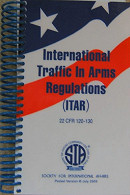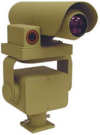 The State Department’s Directorate of Defense Trade Controls (“DDTC”) released today a final rule making it easier to transfer technical data under a technical assistance agreement (“TAA”) to third-country nationals, i.e., nationals of countries other than the country specifically authorized under a TAA. Under current procedures, if a U.S. company enters into a TAA permitting the transfer of technical data on a defense article to a company in France, that technical data can’t be transferred to anyone other than a French national unless the approved TAA provides for such transfer and the non-French national signs a nondisclosure agreement.
The State Department’s Directorate of Defense Trade Controls (“DDTC”) released today a final rule making it easier to transfer technical data under a technical assistance agreement (“TAA”) to third-country nationals, i.e., nationals of countries other than the country specifically authorized under a TAA. Under current procedures, if a U.S. company enters into a TAA permitting the transfer of technical data on a defense article to a company in France, that technical data can’t be transferred to anyone other than a French national unless the approved TAA provides for such transfer and the non-French national signs a nondisclosure agreement.
Under the new rules, technical data can be transferred to a third-country national without specific authorization and a nondisclosure agreement if four conditions are met. First, the third-country national must be a national “exclusively” of a NATO country, a European Union country, Australia, Japan, New Zealand, or Switzerland. Second, the third-country national’s employer must have either signed the TAA or a nondisclosure agreement. Third, the transfer must take place within the United States or the countries listed in the first condition. Finally, the transmittal letter for the TAA must explicitly state that permission is requested to make transfers to third-country nationals under these new provisions.
In its discussion of the new rules, DDTC restates its controversial position that a person may be a third-country national not only because of dual citizenship but also because of country of birth:
In addition to citizenship, DDTC considers country of birth a factor in determining nationality.
How the DDTC applies these factors is not clear from this statement. In theory, a French citizen born of French parents temporarily in Iran might be deemed Iranian. Or an individual born in Iran of Iranian parents that became a French citizen might still be considered an Iranian even if that individual has not retained dual citizenship.
Admittedly application of the rule in the first example is more controversial than in the second example. Still even the second example involves a double standard that rankles our allies. If an Iranian is made a permanent resident in the United States, he or she is treated the same as a U.S. citizen for deemed export purposes, whereas an Iranian naturalized by France is still treated as an Iranian.

 Posted by
Posted by  Category:
Category: 

 On December 3, Philip Cheng from Cupertino, California, was
On December 3, Philip Cheng from Cupertino, California, was  Representative Brad Sherman (D-CA) recently introduced, with one other Democrat and two Republicans, a
Representative Brad Sherman (D-CA) recently introduced, with one other Democrat and two Republicans, a  Almost a year after the last plenary of the
Almost a year after the last plenary of the  I now have a copy of the criminal complaint filed against Qing Li and it answers a number of questions left open by
I now have a copy of the criminal complaint filed against Qing Li and it answers a number of questions left open by 

